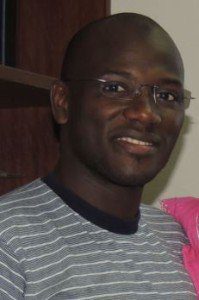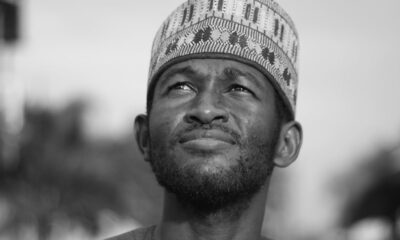Educational Issues
A Worthless PhD from Malaysia? Time for a Rethink -By Mohammed Nuruddeen Suleiman

I had been in Malaysia only a year before, but I could not fathom how, in just a few months, gigantic infrastructural developments had replaced the ubiquitous palm tree plantations across the countryside. I thought this must be the result of leadership ingenuity. I also found this resourcefulness replicated in the public universities, in particular at UM. Additional research centres had been established, while the institution had maintained a place among the 200 best universities in the “QS World University Rankings” across the globe. Academics in the institution have conducted extensive researches that produced several engineering and scientific patents, which translate to Malaysian pride.
When I made up my mind in 2010 to further my studies abroad, particularly in one of the western countries considered the “choicest” by Nigerians, it was a huge task. I knew it would be difficult financially. Nonetheless, I was determined to pursue my dream. Thus, my search for a quality and affordable place to study led me to Malaysia, a growing hub of higher education in Asia. My choice was the University of Malaya (UM), an institution with over 100 years of scientific knowledge production.
As a public servant in Nigeria, I was granted a study leave. However, not everyone was happy about my choice of Malaysia, because some people (even within the academy) felt Malaysia had nothing to offer; however, I knew what I wanted and took the opportunity. My plans coincided with the 2011 general elections in Nigeria, a turbulent and redefining period that almost cost me the dream of my study. I was scheduled to travel to Kaduna for a farewell to my parents, and then fly to Lagos where I could connect to a flight out of the country. However, the post-election violence disrupted my plans; I was trapped in Abuja, while the expiration date for my registration drew closer by the day. I was faced with a choice of waiting to make sure my family was safe in the highly combustible and volatile situation in Kaduna, or flying out to begin my dream. When the dust partially settled, my family decided I should fly out, since I could not return to Kaduna due to the unpredictable situation. And that was the farewell!
Although it was my second trip to Malaysia, this trip reignited the feelings and yearning for good governance in my country. I had been in Malaysia only a year before, but I could not fathom how, in just a few months, gigantic infrastructural developments had replaced the ubiquitous palm tree plantations across the countryside. I thought this must be the result of leadership ingenuity. I also found this resourcefulness replicated in the public universities, in particular at UM. Additional research centres had been established, while the institution had maintained a place among the 200 best universities in the “QS World University Rankings” across the globe. Academics in the institution have conducted extensive researches that produced several engineering and scientific patents, which translate to Malaysian pride. Moreover, foreign students, and in this regard, Nigerians, have significantly contributed to high impact research indexed in the Institute for Scientific Information (ISI) journals. As the premier university in the country, UM has always strived to maintain good quality as it nurtured future leaders.
…the trajectory of the public universities in Malaysia, particularly the five designated research universities, has been designed to leverage high impact research that contributes meaningfully to the development of good policies in the country. The quality of these institutions is increasingly redefining the strategic geopolitical interest of Malaysia across Asia.
Five public universities in Malaysia are designated as research universities, which are well funded by the government. In 2014, the research grants for these five universities alone totaled about RM600million (approximately US$162 million). Ironically, when I interviewed Muhammadu Buhari (an assiduous “former” junta General, and now an emblem of democracy), Malam Nasir Elrufai, and Alhaji Muhammadu Sunusi II separately in 2012 as part of my thesis, their passion for this type of education was in remarkable synchronicity. At that time, their current exalted positions were beyond the imagination even of ingenious fortune-telling syndicates, and now, I am certain their vision remains undiluted! Because at the end of the interviews, they each left me with thought-provoking seminal measures that could transform Nigerian institutions, and the country at large.
Several academics from Nigeria occasionally go to Malaysia for conferences, and are amazed by the level of Research and Development (R&D) in the universities. After such visits, their resentment and antagonistic stance about the quality of Malaysian higher education becomes unsurprisingly ephemeral. Unfortunately, there are several recalcitrant universities, particularly the privately owned, that profit from the naivety of foreign students in the country. Our brothers and sisters from Nigeria frequently end up as students in these institutions, due to misleading information from their Nigerian “agents” who help in processing admission for a fee. Almost all the so-called Nigerian “drug” peddlers take advantage of these institutions for Malaysian Visas. Nonetheless, the trajectory of the public universities in Malaysia, particularly the five designated research universities, has been designed to leverage high impact research that contributes meaningfully to the development of good policies in the country. The quality of these institutions is increasingly redefining the strategic geopolitical interest of Malaysia across Asia.
…many science and engineering tools such as centrifuges need constant electricity to function optimally, whereas some Nigeria universities still use traditional stoves in their science laboratories to heat up chemicals for experiments, due to the absence of electricity. This precludes them from producing scientific results of any substance to add to the body of knowledge.
Malaysian higher education may be underrated by numerous people in Nigeria. Even though I am not on the academic staff of any Nigerian university, I am not so naïve as to suggest that Nigerian universities, without years of hard work, could catch up with the contemporary global dynamics of scientific production and dissemination that some of the Malaysian universities have already achieved. Although Nigerian universities have clusters of outstanding academics, they lack the wherewithal to carry out high impact research. For instance, many science and engineering tools such as centrifuges need constant electricity to function optimally, whereas some Nigeria universities still use traditional stoves in their science laboratories to heat up chemicals for experiments, due to the absence of electricity. This precludes them from producing scientific results of any substance to add to the body of knowledge. Furthermore, in many cases, Malaysian academic supervisors brainstorm with their students on their research projects during lunch or a cup of tea paid for by the supervisors. I have heard stories that Nigerian academic supervisors have become mini “gods”, who decide when a student will graduate. Five to ten years is common for a Ph.D. student. As for me, my university rewarded me with an incentive of about ₦40,000 for completing my studies in a stipulated period, and my academic advisers got almost the same for their untiring efforts on my behalf.
In the social realm in Malaysia, I have learnt to be really, really patient!!; whether queuing to get into a bus or waiting at the pharmacy to collect medication, you have to wait patiently for your turn without cutting corners.
The transformation of these Malaysian universities has truly been beneficial to the public. I was somewhat nervous and naive when my wife and I were expecting our first baby in Malaysia. We thought of how difficult it could be for just the two of us without the usual family help. However, our apprehension was short-lived, as we were graciously welcomed by the nurses and doctors in the university teaching hospital. In fact, a Nigeria student-doctor was on duty then. The labour wards were staffed almost exclusively by female doctors and nurses, and about five nurses helped my wife until the baby arrived. The nurses followed up fortnightly to check the health of the mom and baby at home. Incredibly, these services cost less than ₦30,000. In contrast, some nurses in Nigerian public hospitals create a nightmare for our expectant mothers. For instance, a year before going to Malaysia, I rushed a relative to one of the public hospitals in Kaduna when she was about to give birth; the reception from the nurses on duty broke my heart. Despite her excruciating labour pains, the nurses left her sitting on the floor and intermittently looked toward her with nonchalance. Such attitudes have increasingly contributed to the maternal mortality rate of about 560 for every 100,000 births in Nigeria, according to 2013 World Bank Data.
In the social realm in Malaysia, I have learnt to be really, really patient!!; whether queuing to get into a bus or waiting at the pharmacy to collect medication, you have to wait patiently for your turn without cutting corners. Even honking while driving in a car must be for a serious reason. My car was faulty and stalled by a traffic light junction, and I happened to be the first in the line, but amazingly none of the drivers honked at me or tried to bypass the line until I got help. One of my Professors from the UK would say, Nigerians are amongst the happiest in the world but they lack the simple patience of road use. Naturally, he triggers my nationalistic ego by such comments, and I look for ways to disabuse his mind of that perception. However, nationalism has limits in real discussion, as I was confronted with empirical evidence during one of my visits to Nigeria. The newly installed traffic lights in the streets of my home state of Kaduna were a glamorous change from the past, intended to bring some relative decorum in the roads. Nonetheless, the users of the roads remain lackadaisical, as their impatience with the traffic lights remains a growing nuisance. If this simple etiquette of road use is not respected, the desired “CHANGE” in Nigeria might just be wishful thinking. This reminds me of an incident in Malaysia involving my four-year-old daughter Nina, who keeps me on my toes! I drove past the traffic light just a second after the amber light gave way to the red light. She started crying furiously and asked me why I passed the red light; I had no idea that she had been taught in her kindergarten about the virtue of obeying traffic lights. I had to return to the same traffic light and obey the law before she stopped crying (ever since, she has been watchful while I drive). In reality, moral values result from constructive indoctrination during the cognitive development of children, a task that we have mostly made a lesser priority in Nigeria.
I had a wonderful experience while I wrote my thesis in the scenic environment of UM! I am hoping that future generations in Nigeria will enroll in Malaysian institutions for exchange programmes and leisure only, with the hope that Nigerian universities shall be revamped to world-class level to the benefit of people across the comity of nations.
Close by my apartment in Kuala Lumpur, my wife saw some cats playing; she genuinely thought the animals were all cats until we moved closer. Behold, they were mice, rats and cats playing happily and eating, but not from the trash, rather from branded animal food always left for them by some good Samaritans. The animals have grown bulkier. I jokingly told her that you find this only where there is a semblance of good governance; as such, the cats are too unruffled to be cannibals! And if good governance were consolidated in Nigeria, we might begin to see roasted maize hawkers on the streets, joyfully using cooking gas, as we often see and envy them in the pasar Malam (night market in Malaysia). If this happens in Nigeria, the roasted maize hawker can boast that he has contributed to the campaign against deforestation; for the love of Nigeria and for the love of our earth.
I had a wonderful experience while I wrote my thesis in the scenic environment of UM! I am hoping that future generations in Nigeria will enroll in Malaysian institutions for exchange programmes and leisure only, with the hope that Nigerian universities shall be revamped to world-class level to the benefit of people across the comity of nations. If only our leaders would be that passionate!
Mohammed Nuruddeen Suleiman completed his Ph.D. in Defense and Strategic Studies from University of Malaya, Kuala Lumpur Malaysia in 2015. His thesis was on “Governance, Petrodollars and the Upsurge of Militants in Nigeria: The case of MEND and BOKO Haram.” He can be reached through nuruddeenms@hotmail.com




















